Oral & Maxillofacial Surgery
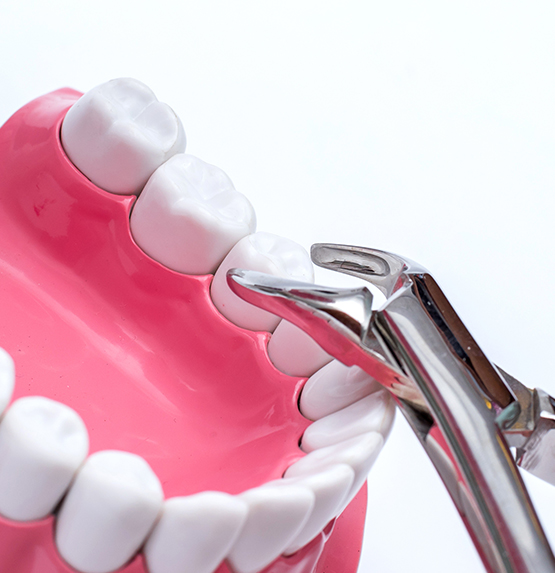
Tooth Extraction Near You
At Beck Family Dental, LLC, it is always our top priority to preserve your teeth using crowns, root canals, and other restorative procedures. However, in some cases, extraction is the best solution for the overall health of your mouth.
Your Beck Family Dental, LLC team may recommend tooth extraction in the following situations:
- Impacted teeth
- Overcrowding
- Extensive, untreatable decay
- TraumaPreparation for orthodontic work
Fortunately, tooth extractions are not painful. The Beck Family Dental, LLC experts use gentle techniques and local anesthetics to ensure that extractions are virtually painless.
Overall, a tooth extraction is used to help restore the health and appearance of your smile. If needed, your dentist may recommend a restoration option such as a bridge, dental implants, or dentures to restore your full, attractive smile.

Wisdom Teeth Removal in Cincinnati
Your wisdom teeth are the third and final set of molars. They usually erupt in your late teens or early twenties. They emerge in the four back corners of your mouth, with two on top and two on the bottom.
For some people, wisdom teeth grow in without any issues. However, most people experience discomfort, crowding, and difficulties with their wisdom teeth.
This is why it’s so important to remove wisdom teeth before they cause serious oral problems.
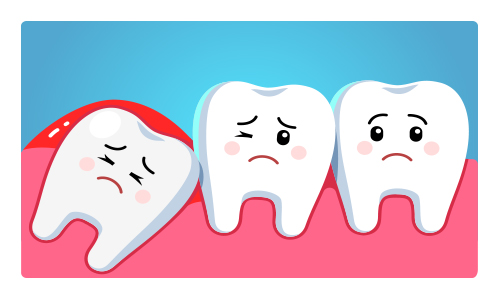

SIGNS YOUR WISDOM TEETH NEED TO BE REMOVED
Wisdom teeth have the potential to cause many complications in your mouth. If there isn’t enough space in the back of your mouth for wisdom teeth to come to the surface, they will erupt in the wrong position.
Signs of wisdom teeth complications include these symptoms:
- Misaligned wisdom teeth trap food and cavity-causing bacteria
- Pain and stiffness in the jaw
- Changes to surrounding teeth, including shifting and crowding
- Damage to roots of nearby teeth or bone
- Unpleasant taste or odor in your mouth
- Difficulty opening your mouth
- Tender or bleeding gums
If you are experiencing any of these issues, call Beck Family Dental, LLC to learn more about wisdom teeth removal. Removal is the best way to prevent issues like infection, decay, and chronic pain.
WISDOM TEETH REMOVAL AND RECOVERY
The wisdom teeth extraction process is a safe, standard procedure. Here are the steps you can expect during wisdom teeth removal at Beck Family Dental, LLC:
- Local anesthesia or conscious sedation prevent pain, discomfort, and anxiety
- Removal of tissue and bone surrounding all four wisdom teeth
- Wisdom teeth are extracted from their sockets
- Stitches close each extraction site
If you opt to use oral conscious sedation like laughing gas, you won’t remember your wisdom teeth removal surgery or feel any pain.
Recovery lasts about three to five days. You can expect slight bleeding and swelling during the first 24 hours, and your jaw may feel stiff after the anesthesia wears off. Fortunately, standard over-the-counter pain medications can reduce your symptoms and provide relief.
If you are experiencing symptoms of wisdom teeth complications, or if you are interested in preventive extraction for your child, schedule a consultation with Beck Family Dental, LLC today.


Pre-Prosthetic Surgery
Pre-prosthetic surgery is used to prepare your mouth for dental restoration.
If you have gum recession, gum disease, jaw atrophy, or other oral health concerns, pre-prosthetic surgery addresses your specific issues to ensure your dental prosthesis fits comfortably and securely.
BONE GRAFT AND RIDGE AUGMENTATION
Bone grafting, also known as ridge augmentation, is one of the most common procedures performed as part of pre-prosthetic surgery.
If your jaw bone has started to shrink and pull away from tooth roots, your denture or other dental prosthesis won’t fit properly. A ridge augmentation is used to fill the shrunken areas with a bone graft. Depending on your situation, your dentist may use your own bone, animal bone, or a synthetic material.
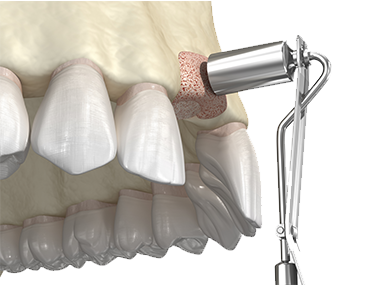
BONE SMOOTHING
Dentures need a smooth alveolar ridge to remain firmly in place. Bone smoothing and reshaping, known as alveoplasty, smooths the uneven spots in your ridge and trims away excess tissue to help dentures fit properly.
EXCESS BONE AND GUM TISSUE REMOVAL
Abnormal bone development is a common dental issue, but it can affect the fit of your dentures. That’s why it’s so important for your dentist to remove any excess bone growths before dentures are placed.
Excess gum tissue can also cause issues. Fortunately, laser gum removal allows for the fast, easy, and painless removal of extra gum tissue. Together, these procedures ensure the best denture fit possible.
THE IMPORTANCE OF PRE-PROSTHETIC SURGERY
Overall, pre-prosthetic surgery is an essential step in the denture process. It offers many benefits that safeguard and improve your oral health:
- Improve the fit and function of your dentures
- Maximize function while talking and eating
- Enhance your appearance
Call the Beck Family Dental, LLC team today to learn more about pre-prosthetic surgery and schedule your consultation. Our experts provide comprehensive, personalized care designed to maximize the appearance, health, and function of your smile.
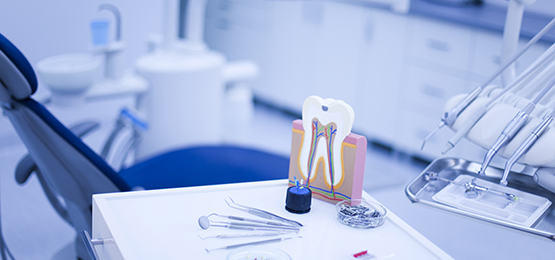

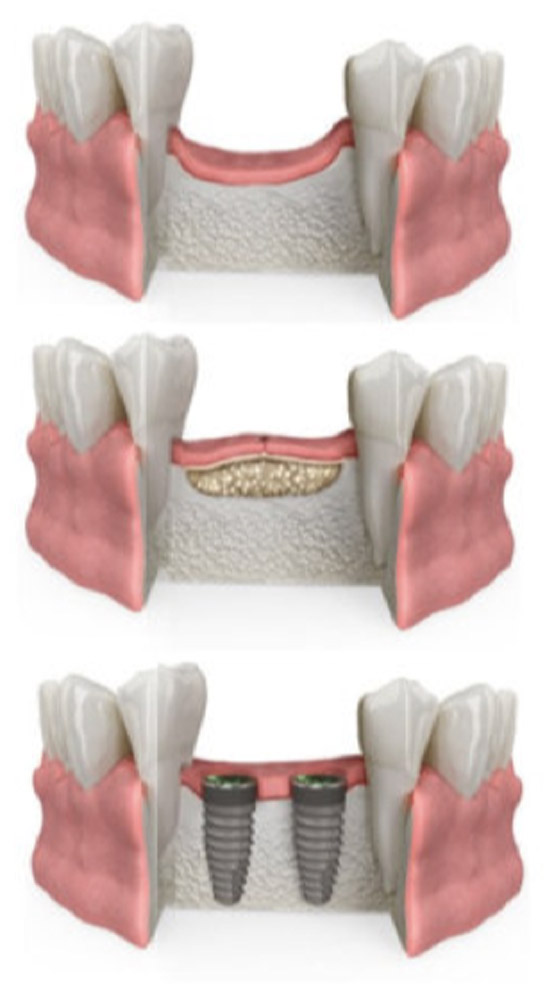
Bone Grafting
Jawbone recession is a dangerous oral health condition that may occur due to untreated gum disease, tooth loss, or facial trauma. If jawbone recession weakens your jaw too much, you may be disqualified from receiving dental implants or other restorative options.
Bone grafting is a procedure used to add density and volume to the jawbone. This gives your jaw bone the strength it needs to support dental implants and allow you to receive the best restorative procedures available.
In fact, studies show that implants placed into grafted tissue have just as high of a success rate as implants placed into natural bone.
HOW IS BONE GRAFTING PERFORMED?
Bone grafting uses biocompatible grafting material or tissue from another part of your body to replace lost jaw bone. This procedure is safe, effective, and long-lasting.
The tooth replacement experts at Beck Family Dental, LLC haven years of experience helping patients restore their bone structure with bone grafting. This is what you can expect from the bone grating process at Beck Family Dental, LLC:
- Imaging is conducted to assess the condition of your bone tissue and determine the best placement for bone grafts
- On the day of surgery, your dentist creates incisions in your gums and carefully places grafting material into recessed jaw bone
- The surgery site is closed with sutures and the three-month recovery process begins
- Once your bone tissue is fully healed, you are eligible for restorative procedures like implants
Bone grafting is the key to help many patients renew their eligibility for dental implants. If you are missing teeth, call Beck Family Dental, LLC to get the care you need today.

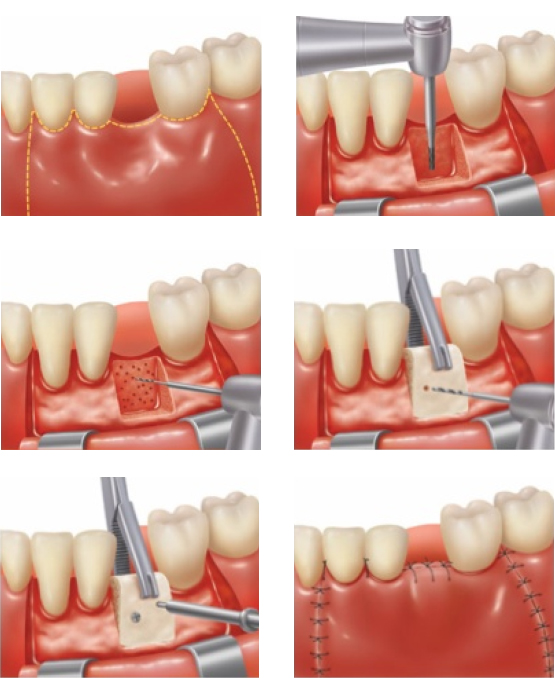
Ridge Augmentation
Ridge augmentation is similar to bone grafting. It is used to recreate the natural contour of the gums and jaw, especially to repair the damage caused by bone loss from a tooth extraction.
The shape and strength of the alveolar ridges are important because they run just below your gums and give shape to your upper and lower teeth. Ridge augmentation can reverse jaw bone recession to rebuild the alveolar ridges. There are many reasons to undergo ridge augmentation if you have missing teeth and bone loss:
- Replace lost jawbone tissue to prepare for dental implants
- Reduce the risk of additional bone and tooth loss
- Improve the fit of dental restorations like dentures
- Provide better stability for dental implants
- Improve the shape and appearance of your smile
If you are preparing for an extraction or you are missing teeth, ridge augmentation surgery may be a great way to safeguard your lifelong oral health, your smile, and your self-confidence. Call Beck Family Dental, LLC now to learn more.

 Tooth Extraction
Tooth Extraction